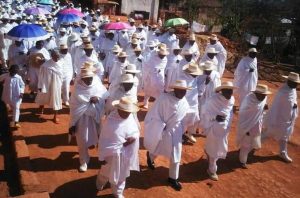After a conference on organ trafficking at the Vatican on February 7th-8th, participants signed a statement agreeing to unite in fighting the crime of organ trafficking – submitting 11 proposals for implementation by healthcare and law enforcement professionals around the world.
The creation of the statement was one of the main objectives of the Summit on Organ Trafficking and Transplant Tourism organized by the Pontifical Academy of Sciences.
Participants in the summit included nearly 80 doctors, law enforcement officials and representatives of health and non-government organizations from around the world, who gave reports on the issue and how it is currently being combated in their respective countries.
According to the World Health Organization (WHO), only about 10 percent, or 120,000, of the estimated 1 million organ transplants needed are performed each year. This data was presented to Pope Francis in 2014, and is an example of the demand for organs creating, in a large part, the drive for illegal trafficking.
Poverty, unemployment, and the lack of socioeconomic opportunities are factors that make persons vulnerable to organ trafficking and human trafficking for the purpose of organ removal. Destitute individuals are victimised in schemes of organ trafficking when induced to sell their organs in a desperate search for a better life.
In general, migrants and refugees are also among the most vulnerable people for organ trafficking, as they may be forced to sell organs if they do not have the cash to pay when soliciting help for transportation by people-smugglers to more stable countries.
Unscrupulous brokers and health care professionals make organ trafficking possible, disregarding the dignity of human beings.
Based on reports and discussion from the conference, the signed statement puts forward 11 different recommendations “to national, regional and municipal governments, ministries of health, to the judiciary, to the leaders of the major religions, to professional medical organizations, and to the general public for implementation around the world”.
These recommendations deal with governmental approaches to laws surrounding organ and human trafficking and their enforcement, emphasising that all nations and cultures should recognise these issues as crimes that should be condemned and that religious leaders encourage ethical organ donation.
One recommendation calls for the establishment of legal frameworks, where they do not already exist, “that provide an explicit basis for the prevention and prosecution of transplant-related crimes” that also protect victims.
Another suggestion is that registries of all organ procurement and transplants are established and “appropriate data shared with international data-banks” and that a legal framework be developed for healthcare professionals “to report information about suspected cases of transplant-related crimes, while respecting their professional obligations to patients”.
It is also recommended that healthcare professionals be educated by organisations involved in transplantation in legal and international guidelines on trafficking, and in consistent ethical and medical reviews of both donors and recipients to assess both short and long-term outcomes. “That nations provide the resources to achieve self-sufficiency in organ donation at a national level…by reducing the need for transplants through preventive measures and improving access to national transplant programs in an ethical and regulated manner,” is also suggested.
Finally, the statement said that the World Health Organization, the Council of Europe, United Nations agencies, including the United Nations Office on Drugs and Crime, and other international bodies, must cooperate in enabling a comprehensive collection of information on transplant-related crimes, to yield a clearer understanding of their nature and scope and of the organization of the criminal networks involved.






